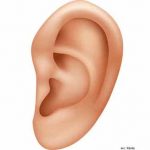NEWS on nervous system implants
Thalamic deep brain stimulation in traumatic brain injury
a phase 1, randomized feasibility study Converging evidence indicates that impairments in executive function and information-processing speed limit quality of life and social reentry after moderate-to-severe traumatic brain injury (msTBI). These deficits reflect dysfunction of frontostriatal networks for which the central lateral (CL) nucleus of the thalamus is a critical...
Spinal cord implant for locomotor deficits due to Parkinson’s disease
People with late-stage Parkinson’s disease (PD) often suffer from debilitating locomotor deficits that are resistant to currently available therapies. To alleviate these deficits, we developed a neuroprosthesis operating in closed loop that targets the dorsal root entry zones innervating lumbosacral segments to reproduce the natural spatiotemporal activation of the lumbosacral...
Cerebellar deep brain stimulation for chronic post-stroke motor rehabilitation: a phase I trial
Upper-extremity impairment after stroke remains a major therapeutic challenge and a target of neuromodulation treatment efforts. In this open-label, non-randomized phase I trial, we applied deep brain stimulation to the cerebellar dentate nucleus combined with renewed physical rehabilitation to promote functional reorganization of ipsilesional cortex in 12 individuals with persistent...
Brain-Computer-Interface: Focus on diamond-based quantum sensors
Much has been developed in the field of prostheses and exoskeletons in recent years. However, the possibilities for a truly intuitive and, above all, non-invasive control systems are still lacking. The sensors currently in use are not sensitive enough for this. A consortium from research and industry wants to change...
First-in-human prediction of chronic pain state using intracranial neural biomarkers
Chronic pain syndromes are often refractory to treatment and cause substantial suffering and disability. Pain severity is often measured through subjective report, while objective biomarkers that may guide diagnosis and treatment are lacking. Four individuals with refractory neuropathic pain were implanted with chronic intracranial electrodes in the anterior cingulate cortex...
Decoding the business of brain–computer interfaces
Fifty years after the term brain–computer interface was coined, the neurotechnology is being pursued by an array of start-up companies using a variety of different technologies. But the path to clinical and commercial success remains uncertain. Of the companies developing BCIs (brain-computer interface) with implanted recording systems, two are exclusively...
Injectable Conductive Hydrogels with Tunable Degradability as Novel Implantable Bioelectrodes
Bioelectrodes have been developed to efficiently mediate electrical signals of biological systems as stimulators and recording devices. Recently, conductive hydrogels have garnered great attention as emerging materials for bioelectrode applications because they can permit intimate/conformal contact with living tissues and tissue-like softness. However, administration and control over the in vivo...
Epidural stimulation of the cervical spinal cord for post-stroke upper-limb paresis
Cerebral strokes can disrupt descending commands from motor cortical areas to the spinal cord, which can result in permanent motor deficits of the arm and hand. However, below the lesion, the spinal circuits that control movement remain intact and could be targeted by neurotechnologies to restore movement. Here we report...
Are hackers attacking medical implants?
Medical devices such as insulin pumps, defibrillators and brain stimulators are getting more and more connectivity. As more and more patients receive implants to treat conditions ranging from diabetes and Parkinson's disease to deafness and heart failure, implants are becoming more complex - and thus more wirelessly controllable. This means...
Find NEWS and PUBLICATIONS here according to your interests or use the search box.









